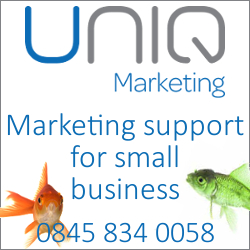WHYTE & MACKAY – JUST A BLUR ON THE VANITY ROUNDABOUT?
Who owns Whyte & Mackay this week? One of Scotland’s best known whisky brands is on the move again, having already had so many changes of ownership to make a tippler’s head spin.
It’s had NINE owners since 1970 in a bewildering game of Vanity Brand Pass the Parcel. Now the current owners are selling the business to a Philippines-based brandy producer.
Previous owners have been headquartered in Scotland, England, America and India.
The Indian spirits maker (today) is being forced to sell the brand for antitrust reasons following a move by rival spirits giant Diageo (aka Guinness/Distillers) to buy a controlling stake in USL.
Here’s the history:
Charles Mackay and James Whyte started the company as whisky merchants and bonded warehousemen in Glasgow in 1882. W&M Special was their first blended whisky and it was successful in the UK and other English speaking countries around the world.
The brand was purchased by Hugh Fraser's SUITS group (Scottish & Universal Investments) in 1971.
SUITS was acquired by Tiny Rowland’s sprawling conglomerate Lonrhoin 1981.
Lonrho then sold Whyte & Mackay to Brent Walker in 1988.
Brent Walker then sold it to American Brandsin 1990. In 1997 it was renamed Fortune Brands.
In 2001 Fortune Brands sold Whyte & Mackay to ‘Kyndal’ a management team, for £200 million. The MBO was backed by German investment bank WestLB.
In February 2005 South African entrepreneur Vivien Immerman bought Whyte & Mackay from WestLB for £208 million.
In May 2007 United Breweries led by flamboyant entrepreneur Vijay Mallya bought the brand £595 million.
In August 2013, Diageo acquired a controlling share in United Spirits Limited (USL), the subsidiary of United Breweries. Key USL board members resigned, including Vijay Mallya.
Now this May, USL has announced it is selling the Whyte & Mackay whisky business to Philippines-based brandy producer Emperador for £430m.
The Indian spirits maker is being forced to sell the brand for antitrust reasons following a move by rival Diageo to buy a controlling stake in USL. As the deal increased Diageo's share of the blended whisky market to about 40%, the OFT was concerned this could reduce competition and raise prices for consumers.
In response, Diageo offered to sell most of its Whyte & Mackay business to appease the competition authorities.
Mr Mallya said, “I am delighted to be able to pass on Whyte and Mackay into the hands of a new owner who is committed to realising the full potential of the business and whose vision of Whyte and Mackay is aligned with that of USL."
New owners can refresh and revive a business, bringing in new capital, opening new markets and installing a fresh business culture. But it can take time for such changes to take effect. Building a business takes a sustained effort over time.
Has W&M had that sustained commitment? Do distributors remember the names of the new managers and new products? Or does it just disappear into a hazy blur as yet another owner pops up to join the ‘pass the parcel’ vanity brand roundabout?




